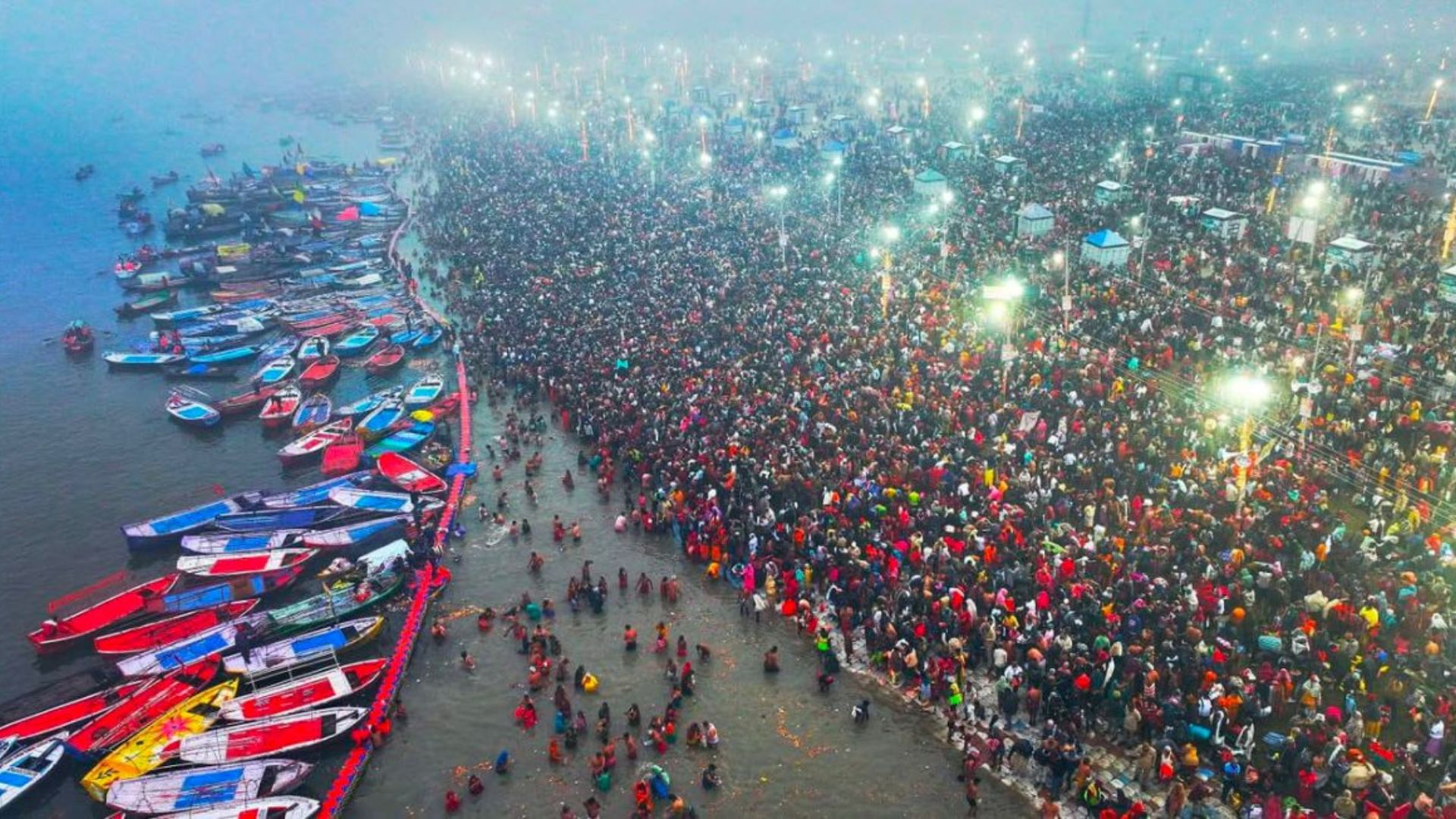New Delhi: Mahakumbh 2025, the holiest festival of the Sanatan faith, transcends its spiritual significance to emerge as a global benchmark in cleanliness and environmental sustainability. Beyond being a congregation of faith, devotion, peace, and liberation, this grand event is setting an extraordinary precedent in waste management and sanitation on a massive scale.
One of the most remarkable aspects of this year’s Mahakumbh is the cutting-edge wastewater management system and a pioneering zero discharge policy, ensuring that no contaminated water reaches the sacred river. These unparalleled efforts have set new global standards, offering an inspiring model for the management of large-scale events worldwide.
Under the dynamic leadership of Chief Minister Yogi Adityanath, the local administration has successfully handled wastewater generated from over 1.5 lakh toilets daily, ensuring that not a single drop of polluted water enters the river. This extraordinary achievement is drawing attention from across the globe.
Special Executive Officer Akanksha Rana emphasized, “The vision of a clean Mahakumbh, inspired by PM Modi and CM Yogi, is breaking new records every day. Despite the massive footfall of over 52 crore devotees, the goal of a garbage-free, plastic-free, and impeccably clean Kumbh has been effectively realized. Mahakumbh 2025 has now become a role model for the management of future large-scale religious events.”
She further elaborated that over 1.5 lakh toilets, including soak-pits, FRP, and mobile units, have been strategically installed across the Mela grounds. A sophisticated QR code-based monitoring system has been implemented to ensure real-time maintenance, while the adoption of jet spray cleaning technology and eco-friendly chemical solutions helps uphold hygiene standards and eliminate foul odors from sanitation facilities.
To efficiently manage the vast amount of waste generated daily, the authorities have implemented a comprehensive waste management system capable of processing 650 metric tonnes (MT) of garbage per day at the Baswar plant. To streamline garbage collection, 120 hopper tipper trucks and 40 compactors have been deployed, along with 94 suction machines dedicated to liquid waste management. Additionally, 25,000 dustbins have been strategically placed across the Mela grounds to uphold cleanliness. In a major step toward enhancing waste disposal efficiency, 37 lakh garbage liner bags have been distributed and utilized throughout the event. For the first time, the Mela Authority has introduced 350 advanced suction machines, along with 1.5-litre capacity toilets and urinals, ensuring zero discharge into the river. Reinforcing its commitment to river conservation, the administration has constructed three temporary and three permanent sewage treatment plants to prevent water pollution. While the installation of toilets was completed ahead of Mahakumbh, they continue to be closely monitored and maintained throughout the festival to ensure hygiene and efficiency. After the event concludes, the authorities will undertake the safe disposal of all waste while meticulously restoring the site. This post-event cleanup will be carried out with the highest environmental sustainability standards, ensuring that the area remains pristine.

